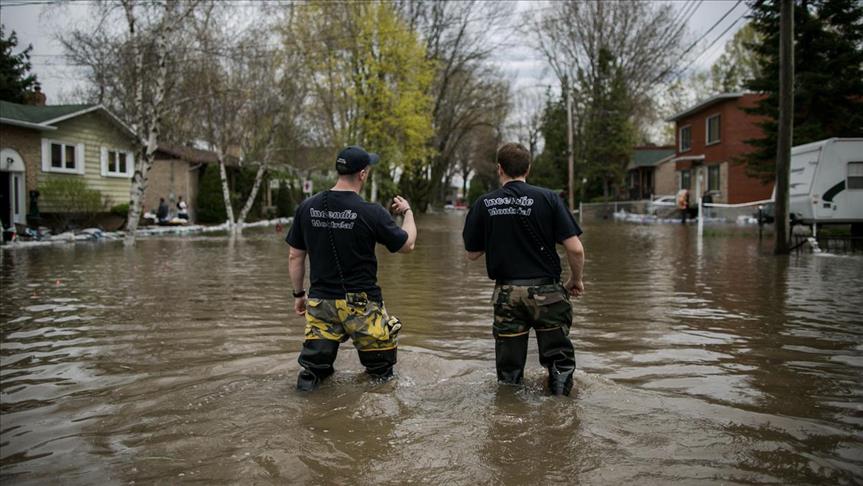Thousands flee floods on Canada’s east coast
Record flooding shows world faces watery future, say scientists

By Barry Ellsworth
TRENTON, Canada
Record flooding in the Canadian province of New Brunswick is a sign of the threat of global climate change that will force many to move to higher ground, Canadian media reported Monday.
The Canadian Coast Guard has been called in to aid those fleeing rising waters, at least a thousand have registered with the Red Cross to say they have evacuated their homes and many others have left to stay with relatives and friends, officials said.
A long section of the Trans-Canada Highway has also been closed.
To make matters worse, the runoff from rivers and streams has affected sewage, and the waters could be “heavily contaminated”, health officials warned.
Environmental scientists said that New Brunswickers and others in various parts of the world should get used to these conditions.
“The reality is that people expect the world to be the way it was, but it’s not,” said Louise Comeau, a professor at the University of New Brunswick and a member of a national panel on climate change adaptation.
Cold April snowstorms followed by abnormally high temperatures caused excessive levels of spring runoffs. Coupled with heavy rains and winds, it created the perfect flooding situation.
“Across the country, there’s an acceleration of what we call the water cycle, which means because the atmosphere is warming, we’re seeing increased precipitation,” said Al Pietroniro, a hydrologist with Environment Canada.
Hydrologist John Pomeroy said the government should consider buying homes from those who have been flooded out so they can move to higher ground.
New Brunswick Premier Brian Gallant said the government must take a more proactive role to deal with the changing conditions.
“We have to do everything we can to combat climate change,” he said. “We have to do everything we can to mitigate versus climate change. We have to do everything we can to raise awareness about climate change.
“We have to do a better job of mapping where there are flood zones, where there will be the potential for flood zones in future, where there will be erosion, what can be done to protect our coasts and to protect our communities.”
The maritime province of New Brunswick is bordered on the east by the Gulf of St. Lawrence and the Atlantic Ocean.
Anadolu Agency website contains only a portion of the news stories offered to subscribers in the AA News Broadcasting System (HAS), and in summarized form. Please contact us for subscription options.







